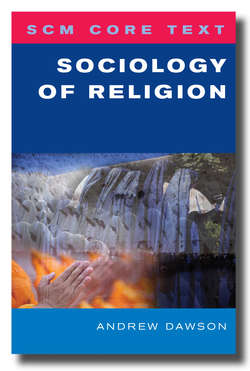Читать книгу SCM Core Text Sociology of Religion - Andrew Dawson - Страница 35
На сайте Литреса книга снята с продажи.
Academic approaches
ОглавлениеA question related to method in the sociology of religion concerns the relationship between the academic researcher and the religious claims made by those individuals and groups being studied. Writing at the beginning of mainstream sociology’s reawakening interest in religion, Berger maintained that sociologists should not concern themselves with ‘the ultimate status of religious definitions of reality’ (1967, p. 180). Defining his approach as one of ‘methodological atheism’, Berger argued that questions relating to the truth or falsity of religious claims should be set to one side (‘bracketed’). Uncomfortable with the theoretical implications of the term ‘atheism’, others have chosen instead to talk of ‘methodological agnosticism’ (Smart, 1973, p. 54). The following quote by Beckford shows methodological atheism/agnosticism in action.
Regardless of whether religious beliefs and experiences actually relate to supernatural, superempirical or noumenal realities, religion is expressed by means of human ideas, symbols, feelings, practices and organizations. These expressions are the products of social interactions, structures and processes and, in turn, they influence social life and cultural meanings to varying degrees. The social scientific study of religion, including social theory, aims to interpret and explain these products and processes. (2003, p. 2) [emphasis added]
Whether employing the term ‘atheistic’ or ‘agnostic’ to describe the methodological bracketing employed, the weight of academic opinion holds that the sociology of religion does not concern itself with seeking to prove or disprove the veracity or falsity of religious worldviews.
As the sociology of religion is an academic discipline, adherents of a religious worldview are challenged to reach a point of critical distance from which they are able to engage religion in a manner conducive to prevailing academic standards and disciplinary expectations. At the same time, the peculiar subject matter of the discipline requires those of an agnostic or atheistic persuasion to reach a point of empathetic understanding from which they are able to engage religion with an awareness of and appreciation for its volitional, affective, practical, intellectual and evaluative particularities. In effect, the challenge to develop the critical empathy required to make the most of the sociological study of religion entails that the perspective of the typical believer, agnostic or atheist is neither more nor less privileged than any other.
The kind of self-critical reflection undertaken in respect of the sociologist’s encounter with religion is typical of what is often called ‘reflexivity’. Although reflexivity has a number of technical meanings, its most common usage refers to the need for social scientists to reflect upon the influence which their personal experience and academic approach have upon their research. Consequently, the principle of reflexivity combines two elements. First, it includes critical reflection ‘upon the ways in which our own values, experiences, interests, beliefs, political commitments, wider aims in life and social identities’ shape our research. Second, the principle of reflexivity calls for reflection ‘upon the assumptions (about the world, about knowledge) that we have made in the course of the research, and . . . the implications of such assumptions for the research and its findings’ (Willig, 2001, p. 10). Sociologically speaking, then, reflexivity encourages those who engage religion to be aware of the particular point from which religion is approached and the respective impact which this given perspective has upon, for example, the definitions used, theories employed, methods applied, analyses undertaken and interpretations preferred.
